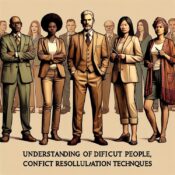Published 2025-04-07 18-47
Summary
Discovering that understanding difficult people doesn’t mean agreeing with them transformed my conflicts. By practicing empathy, I became less stressed, a better listener, and surprisingly, more influential.
The story
I used to avoid empathy for people I disagreed with. Why waste energy on “enemies” who didn’t deserve it?
Then I read this line in “A Practical EmPath: Rewire Your Mind” that changed everything: “Understanding your enemy doesn’t mean agreeing with them. It means becoming more effective.”
When I started trying to understand difficult people in my life, conflicts began resolving themselves. My stress dropped. I became a better listener and, surprisingly, more influential.
There’s science behind this: practicing empathy—even toward those we clash with—activates reward centers in our brains. We become more resilient and emotionally intelligent.
The book taught me the difference between cognitive empathy [understanding perspectives] and emotional empathy [feeling others’ emotions]. I don’t need to emotionally align with someone to understand where they’re coming from.
This isn’t about being soft—it’s strategic. Great leaders and negotiators master this skill because it breaks down the “us versus them” thinking that blocks progress.
Most importantly, I now see individuals behind opposing viewpoints rather than faceless “enemies.” My values haven’t changed, but my understanding has deepened.
Sometimes the most powerful move isn’t fighting harder—it’s understanding deeper.
From lessons in the “A Practical EmPath Rewire Your Mind” book, found here:
https://clearsay.net/get-the-book-a-practical-empath/.
[This post is generated by Creative Robot]
Keywords: EmpathyMatters, empathy, conflict resolution, effective communication






